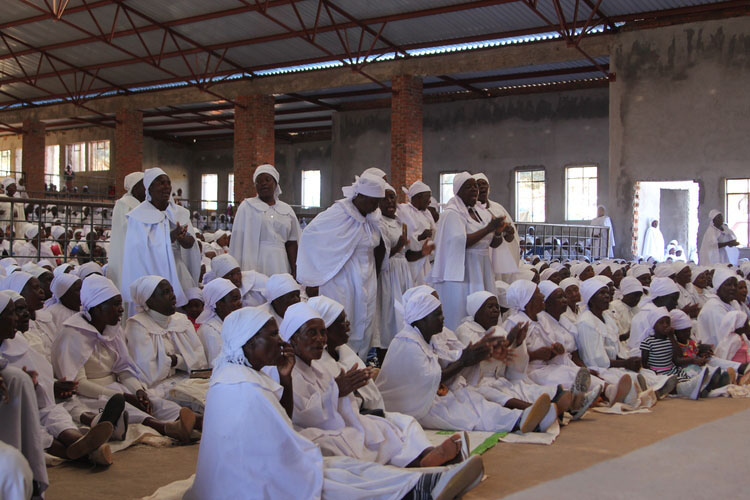By Mashudu Netsianda
Mugodhi Apostolic Church, one of the largest Apostolic sects in Zimbabwe, faces fresh divisions after one of its senior pastors approached the High Court challenging the validity of the church’s constitution, saying it was not properly enacted.

The church was founded by the late Bishop Elijah Mugodhi in 1932.
Soon after the death of his son, Tadewu who was the fifth to have taken the reins since his father’s death, cracks emerged within the church.
Four leaders came between Tadewu and his father until the last leader, Mubvuwiwa, handed over the church leadership back to the Mugodhis in 2002.
Following the death of Tadewu in October, one of the church elders, Rev Tony Sigauke, is now angling to snatch power from Tadewu’s son, Washington Mugodhi, who had succeeded him.
Rev Sigauke, started fighting Tadewu for the leadership of the church in August after the ailing leader revealed that he wanted Washington to take over from him.
Bishop Tadewu Mugodhi succumbed to cancer at the age of 79.
In the latest wrangle, Reverend Admore Ndlovu, a senior pastor, through his lawyers Mugiya and Macharaga Law Chambers, filed an application for a declaratur at the Bulawayo High Court seeking an order nullifying the church constitution.
He is also accusing Washington of being an illegitimate leader.
In papers before the court, Bishop Washington Mugodhi and Mugodhi Apostolic Faith Church were cited as respondents.
In his founding affidavit, Rev Ndlovu said the church was using a constitution which the congregants were not privy to when it was enacted.
“I have personally approached the second respondent (Bishop Washington Mugodhi) over the issue and he admitted that the constitution was not properly enacted. What is apparent from the copy of the constitution is that it was inconsistently signed with some purported signatories not having stated their names or the date on which they allegedly signed it,” he said.
Rev Ndlovu said the signatures were forged after discovering that the committee members whose purported signatures were appended on the constitution did not exist.
“There is no evidence suggesting that the constitution was adopted by its members. It appears to be a document which was crafted by someone who then forged some signatures and threw it to the church to use before it could be properly adopted,” he said.
Rev Ndlovu said the church’s vice bishops and the board of trustees’ ministers and elders were not aware of the procedure used to adopt the constitution.
“It is clear that the purported constitution of the church was not adopted by the church and that it cannot be used as a genuine constitution for whatever purposes. If the constitution had been adopted, the second respondent would have authorised outreach programmes to seek membership approval since it legally binds all members,” he said.
Rev Ndlovu wants the constitution dated August 19, 2012, to be declared null and void with the respondents paying the legal costs in the event that they challenge the application.
The respondents are yet to respond to the application.
Prior to his death, Tadewu is said to have anointed his son, Washington to take over, a development which did not go down well with Rev Sigauke and his loyalists.
The church’s founder Bishop Elijah Mugodhi split from Apostolic Faith Church (AFC) and started his own ministry.
He had risen through the AFC’s ranks to become the church’s secretary general. However, in his early years of ministry, he disagreed with AFC leaders when he requested to marry a second wife.
Together with elders Kunonga, Machakaire, Matigi and Chakuvinda — Elijah established a new church.
Years later, Kunonga, who was now a senior elder, had a fall-out with Elijah as he (Kunonga) and Machakaire wanted to ban polygamy in the church.
The fall-out resulted in the Mugodhi church’s first split.
For close to seven decades, the church had operated without a constitution.
But, when Tadewu came into power, there were some changes since he was a modern leader. He championed the drafting of the church constitution with seven elders overseeing the process.
The constitution also addressed the issue of congregants accessing medical health and allowing children to be immunised, giving them the permission to do so. Prior to this, if a congregant sought medical health, they were supposed to be cleansed first before donning church regalia again. If one died in hospital, congregants were not allowed to wear church uniforms at the funeral.
However, for years, the constitution was never shared with congregants. The Chronicle






